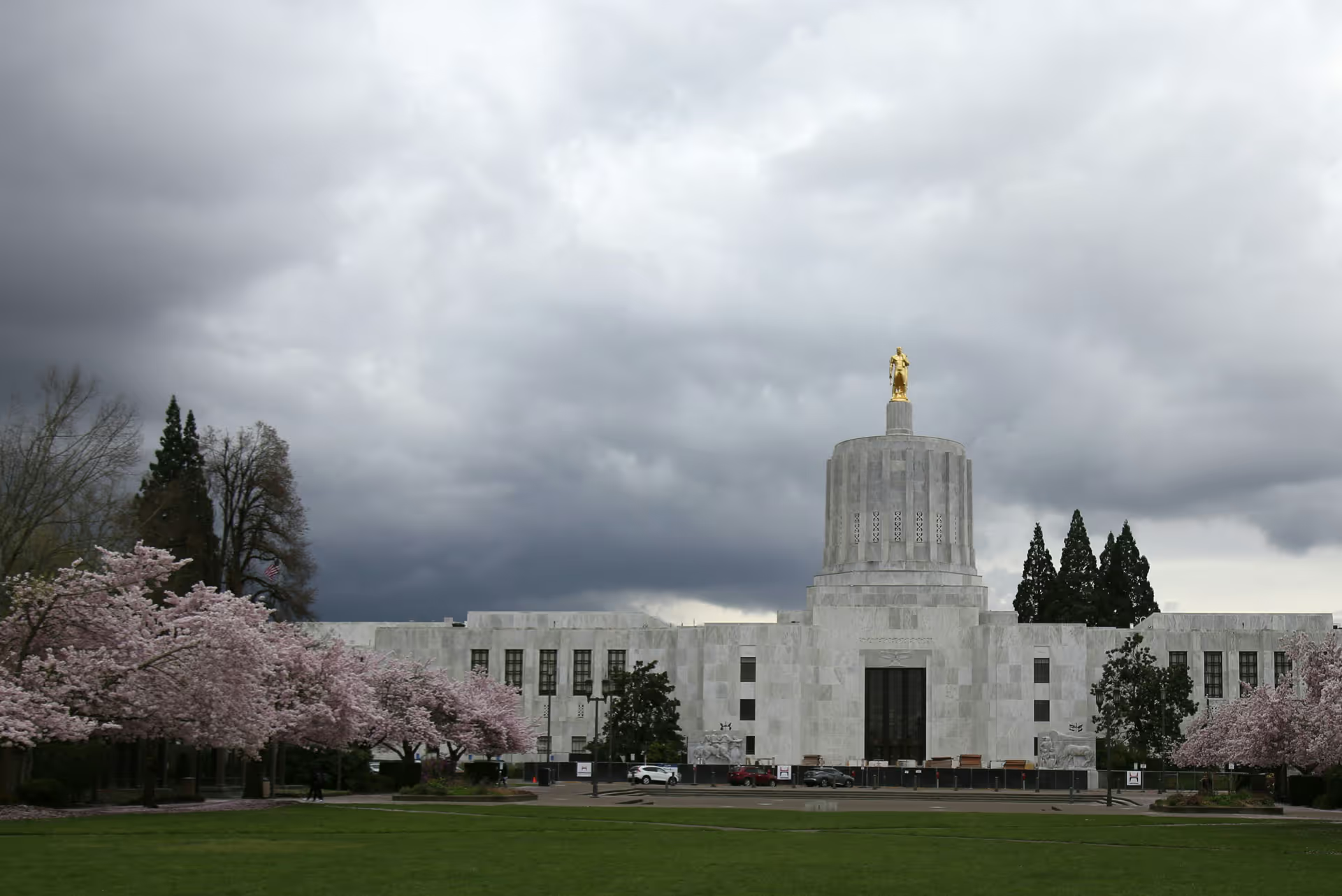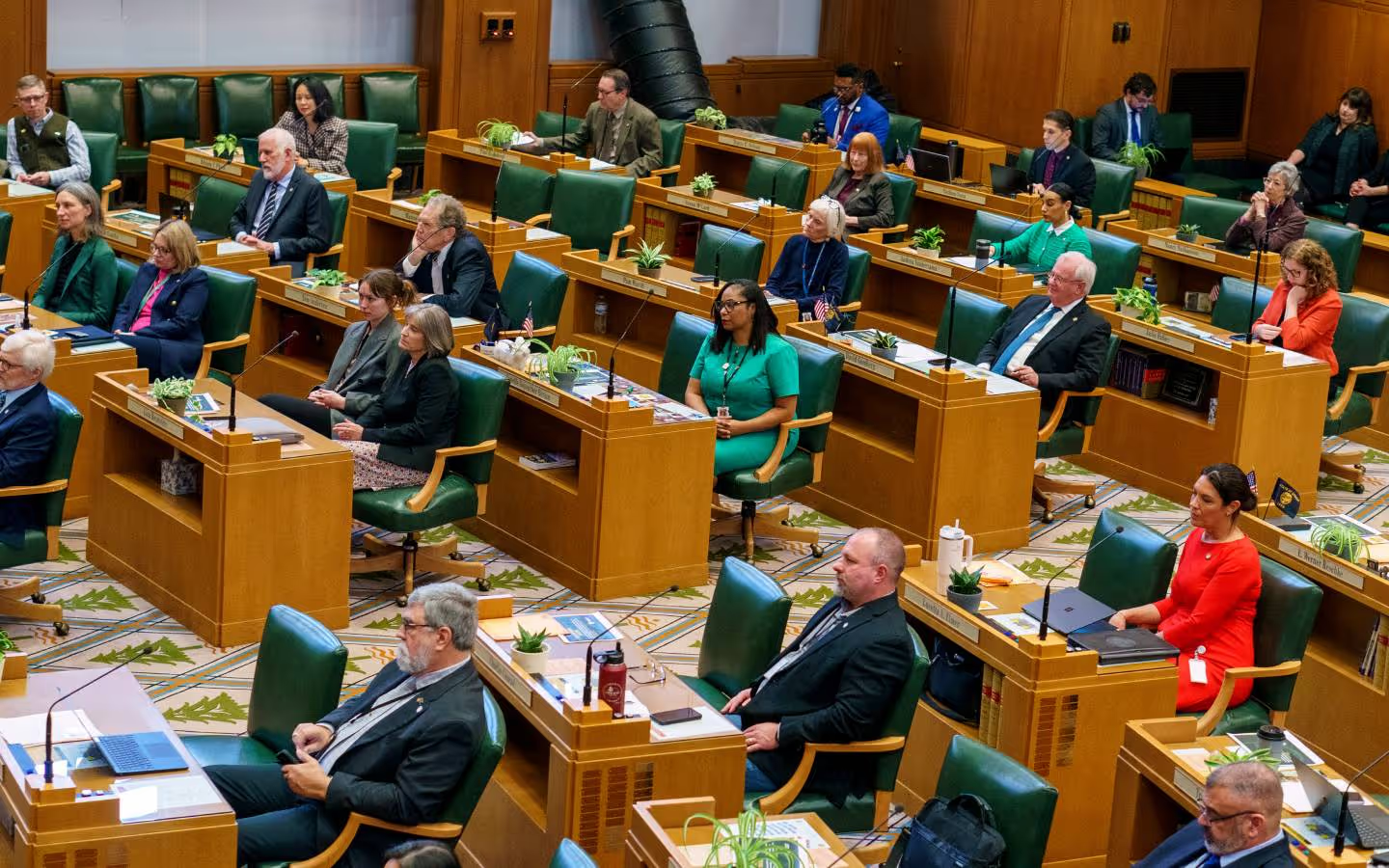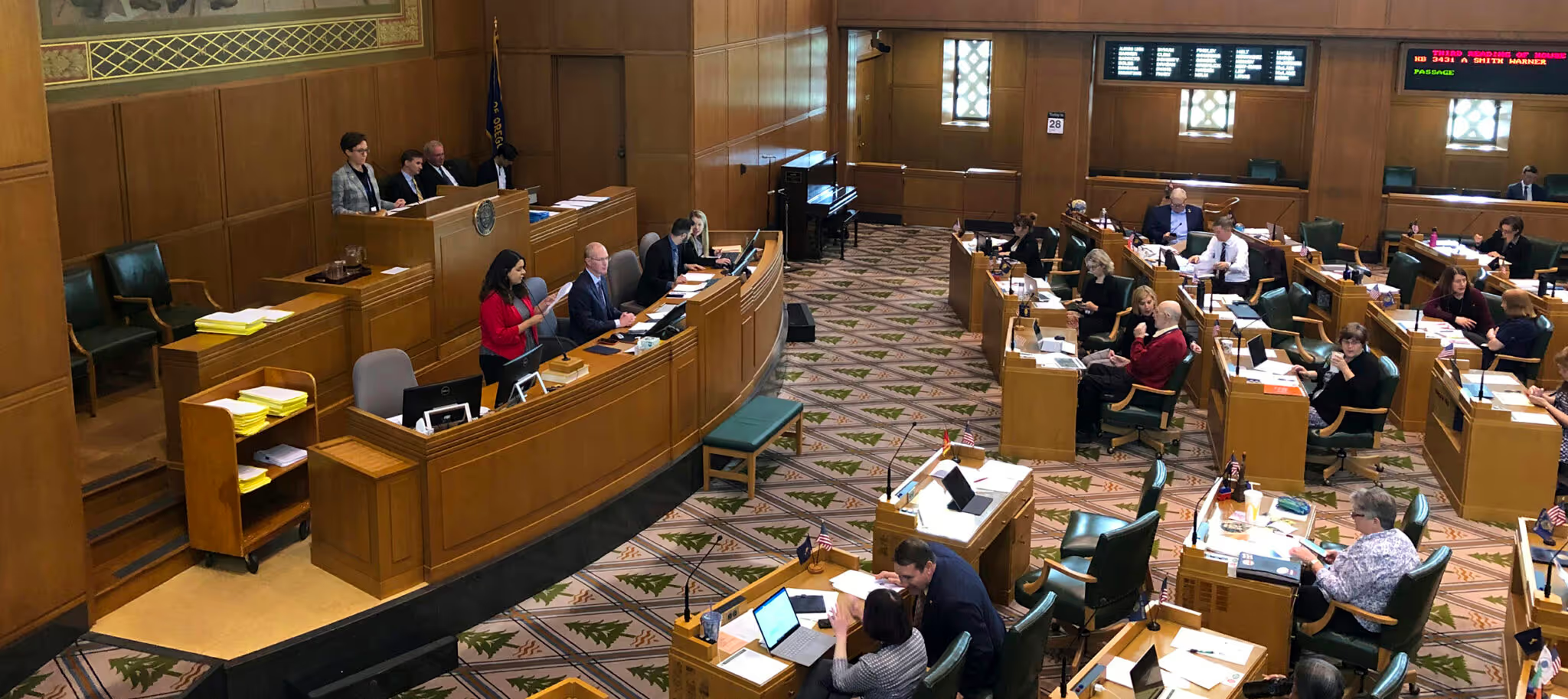State Issues
The Oregon Legislature meets annually, and the Chamber tracks key bills.

State Level
Legislative priorities

Whether reviewing local city ordinances and development codes or weighing in on legislative proposal in Salem, the Chamber has an active and effective advocacy program. Our guiding policy principles, set by the Chamber Board of Directors, include:
- Support modernizing permitting and regulatory processes, advancing economic development tools that position Central Oregon for long-term competitiveness, and engaging with the Governor’s Prosperity Council
- Support efforts to bring balance to the state’s recreational liability waiver, via the Oregon Recreation Commerce and Affordability Act of 2026 (ORCA), Senate Bill 1593 , and House Bill 4071
- Support policies that accelerate housing production, protect access to affordable healthcare, and ensure access to affordable childcare as a critical workforce participation tool.
- Support targeted investments in transportation, utilities, and coordinated land-use planning recognizing they are essential to support housing, job growth, and private investment across the region.
- Champion career-connected learning and workforce training to help employers adapt to evolving skill needs, particularly in high-demand sectors such as construction, healthcare and advanced manufacturing.
- Promote policies that protect Central Oregon’s natural assets while ensuring timely investment in energy, water, and utility infrastructure needed for economic resilience.
- (Updates coming soon)
- Support for People for an Affordable Oregon – 07-20-22
- Paid Family Medical Leave Insurance Rule Comments – 12-09-21
- Opposition to SB 139 Amendments – 06-16-2021
- Support for Room Tax and Tourism Funding Changes – 04-21-21
- Support for House Bill 2282 on Affordable Housing in Bend – 04-08-21
- Opposition to House Bill 2457 on Taxing PPP Loans – 03-17-21
- Opposition to House Bill 2205 on Lawsuit Expansion – 03-17-21
- Support for House Bill 3109 on Child Care Zoning Regulations – 03-10-21
- Opposition to House Bills 3171 & 3172 on Insurance Regulations – 03-10-21
- Support Letter for House Bill 3109 – 03-10-21
- Opposition to House Bill 2100 – 03-02-21
- Support for House Bill 2638 on COVID Liability – 02-24-21
- Support for Senate Bill 531 – 02-18-21
Advocacy in Salem
Advocacy in Salem is a core component of the Chamber’s ongoing work to promote a vibrant business community. The legislative process is not one for the faint of heart, as over 4,000 bills are introduced in an average long session, and address a wide range of issues.
About the Oregon State Legislature
The Oregon State Legislature convenes annually in February at the State Capitol in Salem. Legislative sessions are limited to 160 days in odd-numbered years and 35 days in even-numbered years. In odd-numbered years, the Legislative Assembly convenes on the second Monday in January, to swear-in newly elected officials, elect legislative leaders, adopt rules, organize and appoint committees, and begin introducing bills.
If an emergency arises during the interim period when the legislature is not in session, the Governor or a majority of both houses of the legislature may call a special session.
Learn more about Oregon State representatives
Oregon’s bicameral legislature consists of the House of Representatives, which has 60 members elected for two-year terms, and the Senate, whose 30 members are elected to serve for four-year terms.

State senators
Oregon’s State Senate has 30 members serving four-year terms, advancing legislation and representing constituents across districts.

State representatives
The Oregon House of Representatives includes 60 members serving two-year terms, crafting state law and representing local districts.




.avif)
